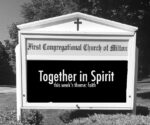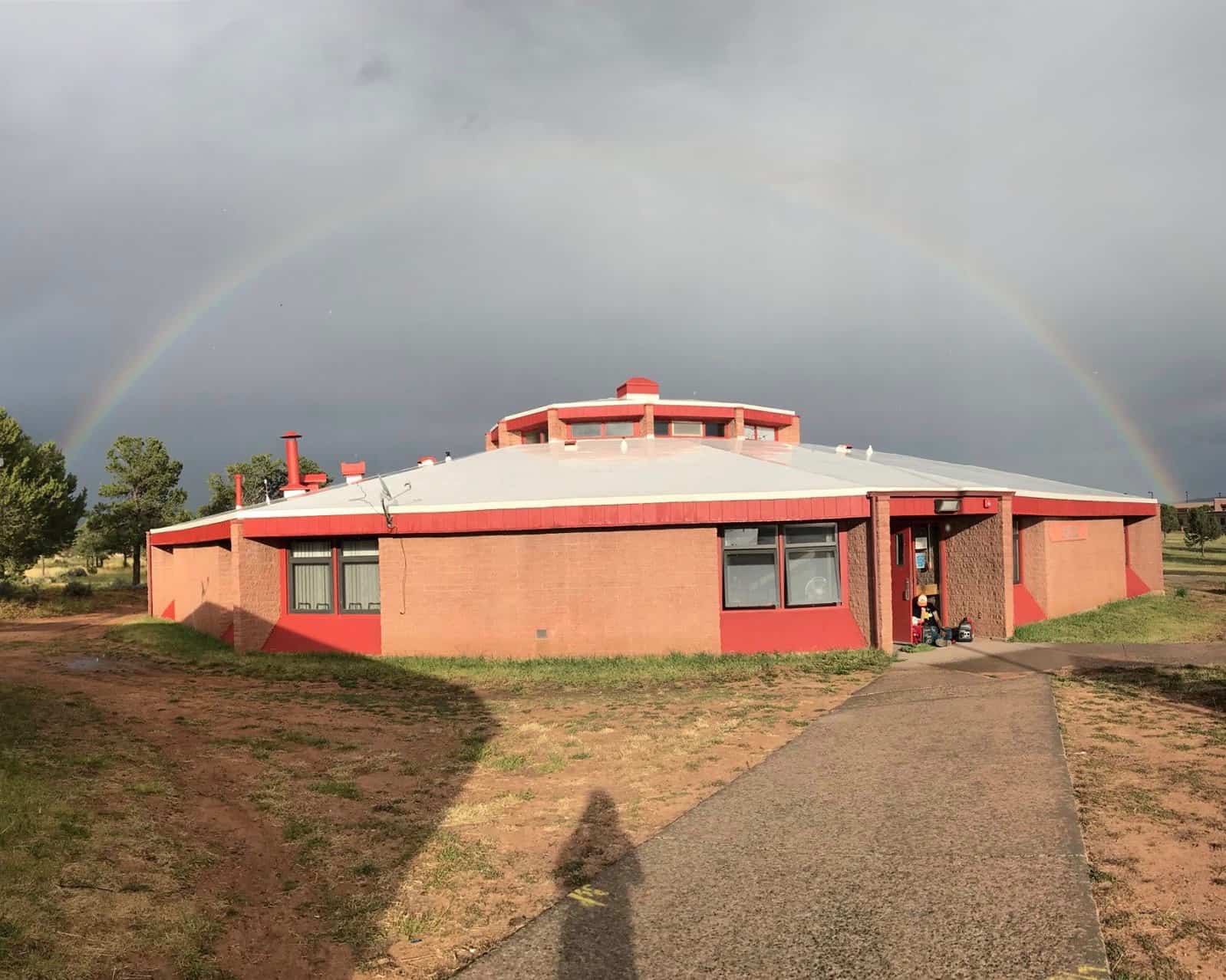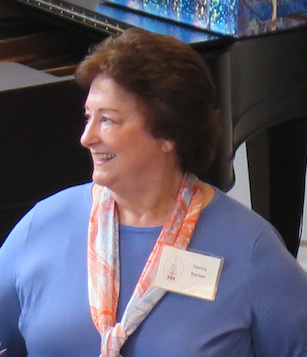
By: Jay Fundling
This is a sermon from our Summer “Voices of the Congregation” series.
For the first 15 years of my working life, I was an actuary that worked with retirement plans. I found that job to be exactly as exciting as it sounds. I switched careers when I turned 40, but a bit of my old life sticks with me.
I worked with pension plans. I’m not sure what you have for your retirement, but pensions work differently than a 401(k) that many of you may have.
In a 401(k) or similar plan, you and your employer put money in an account, you have a say in how it is invested. When you retire you have a large account of money to see you through retirement.
A pension, on the other hand, involves a promise from your employer. They say that when you retire, based on how long you worked there, you will get a monthly check. And you will get that check for as long as you or your spouse are alive.
Working with pensions for so long gave me an appreciation for their benefits, and now, I see a lot of parallels between pension plans, and the church community, while a 401(k) plan is life without your community.
With a 401(k) plan, the day you retire you have a pile of money – maybe a big pile of money – and you are on your own.
If you spend it all, too bad.
If you buy a boat and it sinks, too bad.
If you have health problems that eat up your savings, too bad.
Even if you live a decade or two longer than you were expecting to – in many ways that is wonderful – but financially speaking you are stuck trying to make your money pay for many more years of needs than you were expecting.
A pension, on the other hand, says that it will give you the same check every month, no matter what.
If you spend all your money foolishly one month, you get another check the next month. If you live a long time, there is no expiration date. If you have health problems, this won’t cure those problems, but it will provide reliable support.
This is how I see the benefits of the church community.
You don’t get a million dollar check when you come to church, but you get what you need. Being a member of a church will not prevent big disasters from striking your life, but it will support you dependably when those times come.
When you make bad choices – and we all do – you are still welcome here. As long as you are alive, you are a part of this community. For some that is a very long time, for some it is much too short, but either way you get the support while you need it.
Sticking with the retirement plan analogy, another similarity is how the money is handled.
In a 401(k) plan, you are in charge of investing your money.
No matter what your day job is, no matter if you know anything about investing, you have to manage the biggest block of money you will ever have.
In a pension, there’s an expert investing your money, and if there is a shortfall – if there’s not enough money in the plan – your company makes it up.
When we are outside of church we often think we are going it on our own.
We are in charge and we make all the decisions, whether we want to or not. When we come to church we realize some of the biggest decisions are out of our hands.
We don’t make all the decisions and that’s okay. We have to learn to sit back and trust.
In the reading today, Paul is talking to the church in Corinth about acting like a community.
I’d like to provide some context, because I know when you hear the reading out of nowhere, it’s not always obvious what point they are trying to get across.
Why is he talking about eating? Is this a poetic metaphor, or is he talking about an actual meal?
He’s actually talking about a meal
Paul was telling the church in Corinth how they should conduct their religious service, including how they eat their meal, the Lord’s Supper.
Their Lord’s Supper was not just a small bit of bread and wine like we have, it was a full meal. It was like communion combined with coffee hour in this church.
Paul is telling them how to have a group meal.
When I selected this reading, when it really spoke to me, I did not first find it in the translation of the Bible that Nancy read from.
I found this passage in a book by an author named Mark Russell.
Mark Russell has written several funny, insightful books I’ve enjoyed and I’m a big fan
This one is called “God Is Disappointed In You”
In this book he retells every book in the Bible faithfully to the source material, but in his own tone. I found his version of this passage was very understandable.
This is how he conveys Paul’s comments on how the Corinthians were
conducting their common meal:
When you celebrate the Lord’s Supper, it needs to be a potluck, and not a brown bag. Last time I was there, everyone brought their own food. And there was some jerk getting drunk on wine and gorging himself with roast lamb, while all the guy next to him had to munch on were a few crackers. Do you have any idea how bad this looks? If you want to keep your fancy snacks to yourself, eat at home. When we eat together we should share everything like family. What good does it do to celebrate our brotherhood by embarrassing the guy sitting next to you.
What Paul is saying – either in the traditional translation or the more colloquial one – is about acting like a community.
Some members of the church were wealthy.
They were enjoying their Sunday night dinner with their nice food and lots of wine.
Their bellies were full, but they weren’t acting as a community.
They were full while others at the table were hungry.
Again, this isn’t a metaphor about world hunger, or hunger of the spirit, these were people in the same room at the same table, who weren’t sharing their food.
Paul says you despise the church – or show contempt for the church – if you show up and do not share your food.
Because the point of coming here on Sunday is not what you get as an individual.
It’s not that you enjoy the music by yourself, not that you hear the prayers by yourself,
not that you get something to eat at coffee hour, it’s that we all do those things together.
I started my sermon by explaining how pensions work.
The reason I felt the need to explain them – and one reason I found a new job – is that companies aren’t offering pensions much anymore.
They have found that, for all the benefits, people don’t appreciate the vague promise as much as they should, and prefer to see a large dollar number in an account in their name.
That’s enjoyable, having this big account. It’s enjoyable in the same way that sleeping late on Sunday is enjoyable.
I have my account with my money.
My time, my Sunday morning.
My decisions, my control
my life. I’m in charge.
It sounds good at first, until you think of what you are giving up.
The community.
The support.
The lifetime bonds.
The knowledge that, while bad times will still come, you won’t face them alone.






 By: Niki Rukstalis
By: Niki Rukstalis
